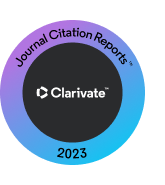The indexing of scientific knowledge: The need for knowledge at the service of community development and nature protection
DOI:
https://doi.org/10.5327/Z217694781470Keywords:
publish or perish; social impact; productivism; scientific colonialism.Abstract
The pandemic, the economic crisis, and climate change impose new development models of scientific production, as we suggest in this perspective study. The authors propose “new ways of evaluating academic performance,” which means stopping exclusively rewarding researchers who publish in indexed journals and valuing work with communities and applied interdisciplinary research, aimed at understanding socioenvironmental problems and proposing possible solutions that improve academic performance, improve quality of life of the population, and protect nature.
Downloads
References
Acosta, A., 2011. Extractivismo y neoextractivismo: dos caras de la misma maldición. Revista Más Allá del Desarrollo, 1-23.
Barra, R., 2020. The 2019 global environment outlook and the global chemicals outlook: challenges for environmental chemistry and toxicology in Latinamerica. Current Opinion in Green and Sustainable Chemistry, v. 25, 100352. https://doi.org/10.1016/j.cogsc.2020.100352.
Fernandes, V., 2022. Why and where to publish. Viewpoint. Brazilian Journal of Environmental Sciences, v. 57, (3), 516-518. https://doi.org/10.5327/Z2176-94781439.
Gudynas, E., 2016. Extractivismos. Ecología, economía y política de un modo de entender el desarrollo y la Naturaleza. CEDIB y CLAES.
Hicks, D.; Wouters, P.; Waltman, L.; Rafols, I., 2015. The Leiden Manisfesto for research metrics. Nature, v. 520, 429-431. https://doi.org/10.1038/520429a.
Clarivariate, 2020. Análisis de las publicaciones en el área de las Ciencias Ambientales de Chile 2000-2020. Journal of Scitation Reports. (Accessed Sept 10, 2021). Available at:. https://clarivate.com/webofsciencegroup/web-of-science-journal-citation-reports-2020-infographic-br/.
Martínez Alier, J., 2015. Ecología política del extractivismo y justicia socio-ambiental. Revistas UNAM. Interdisciplina, v. 3, (7), 57-73. https://doi.org/10.22201/ceiich.24485705e.2015.7.52384.
Organización para la Cooperación y el Desarrollo Económicos (OECD), 2020. Research and development statistics. OECD (Accessed Sept 10, 2021). Available at:. http://www.oecd.org/innovation/inno/researchanddevelopmentstatisticsrds.htm.
Rojas, J., 2013. Era Antropoceno, cambio climático, movimientos sociales y sociedad del futuro. In: Ruiz Uribe, M.N. (ed.), América Latina en la crisis global: problemas y desafíos. FronterAbierta, IUIT, UDT, CLACSO, México, pp. 197-228.
Santos, B. de S., 2010. Refundación del estado en América Latina: perspectivas desde una epistemología del Sur. Instituto Nacional de Derechos y Sociedad, Lima.
Svampa, M., 2011. Extractivismo neodesarrollista y movimientos sociales:¿ Un giro ecoterritorial hacia nuevas alternativas. Revista Más Allá del Desarrollo, v. 1, (3), 185-218.
Published
How to Cite
Issue
Section
License
Copyright (c) 2022 Revista Brasileira de Ciências Ambientais

This work is licensed under a Creative Commons Attribution 4.0 International License.


























